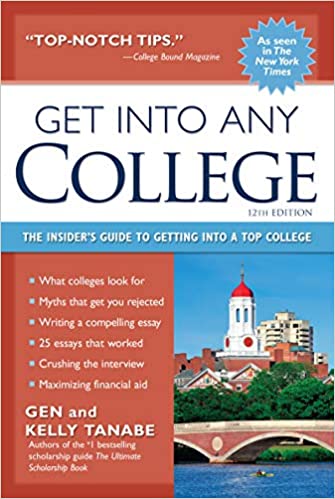8
Beware of the college brochure.
No doubt you'll soon be receiving tons of beautiful full-color brochures from the colleges you’ve contacted. While these brochures are filled with lots of useful information, remember that they are biased and will tout only the positive aspects of the school. See the pictures of the students studying under the trees in the warm sunshine? That was taken in the early fall before the snow blanketed the campus for next four months. Always view the college’s brochure with a healthy dose of caution.
Compare the brochures from the various colleges. They can be useful in helping you assemble a list of questions that you want to ask representatives later in one-to-one interviews. For example, you might see a science building in one college’s brochure but wonder why such a photograph is not included in another school’s brochure. Could it be that the second school doesn't have a building dedicated to science or perhaps that they share the facility with the math department? If you are looking for a school with a large science department, that might be important to you. It could be a question for the rep from that school when you talk later.
9
Don't rely on news magazine rankings.
One student we know used the U.S. News & World Report annual college rankings as her only criteria for applying to college. She was accepted by three of the five colleges to which she applied. Only one problem: She realized later that she didn't want to move to the East Coast where all the schools were located! Sure, you can use rankings as a guide to reputation (whatever that means!) but you definitely need to do your own research and have concrete reasons for applying.
Just as you used the college directories, brochures, catalogs and web sites to help you get started in your initial search for possible college choices, include news magazine rankings in your beginning research. If nothing else, the rankings might help you pose questions for representatives of those colleges. A word of advice: Keep your research organized. Too many statistics can be overwhelming if you don't keep up with what you find. Perhaps you can start a folder for each college or a notebook with pocketed dividers. Separate the information you gather for each school and put the rankings information in its place, right next to the brochures and notes you took at the College Fair.
10
Don't worry about money (yet).
Until now, we have not discussed what is perhaps the biggest factor in determining where you will go to college—money. Yes, it is true that college costs a bundle, with private colleges being especially guilty of exorbitant prices. However, at this point, do not let costs dictate your goals. Even if money is tight, don't make it your primary concern just yet. (If you have trouble paying for the application fee, ask your counselor about a fee waiver.) While tuition is expensive, there is also a ton of financial aid available. Just last year over $97 billion in financial aid was given to students to help them pay for college. The real question is not how much a college costs, but how much you'll have to pay out of pocket after taking into account scholarships and financial aid.
Once you get accepted, you can work with the college to put together a financial aid package that will make the school affordable. Wait until you are accepted by the college and they have determined what kind of financial aid package they can offer you before making cost a limiting factor. It could turn out that with financial aid and scholarships, the most expensive college on your list would actually cost your family the least amount of money.
As you explore colleges, you'll discover that some factors are not as important to you as others. In fact, the whole point of going through the process outlined in this guide is to discover what aspects of college life will determine your focus as you research. Ultimately, you want to pick schools that meet your needs. As you do your detective work, keep in mind that your college education is one of the most important investments you will ever make in your future and it's worth spending the time to make sure you make the right decision.


